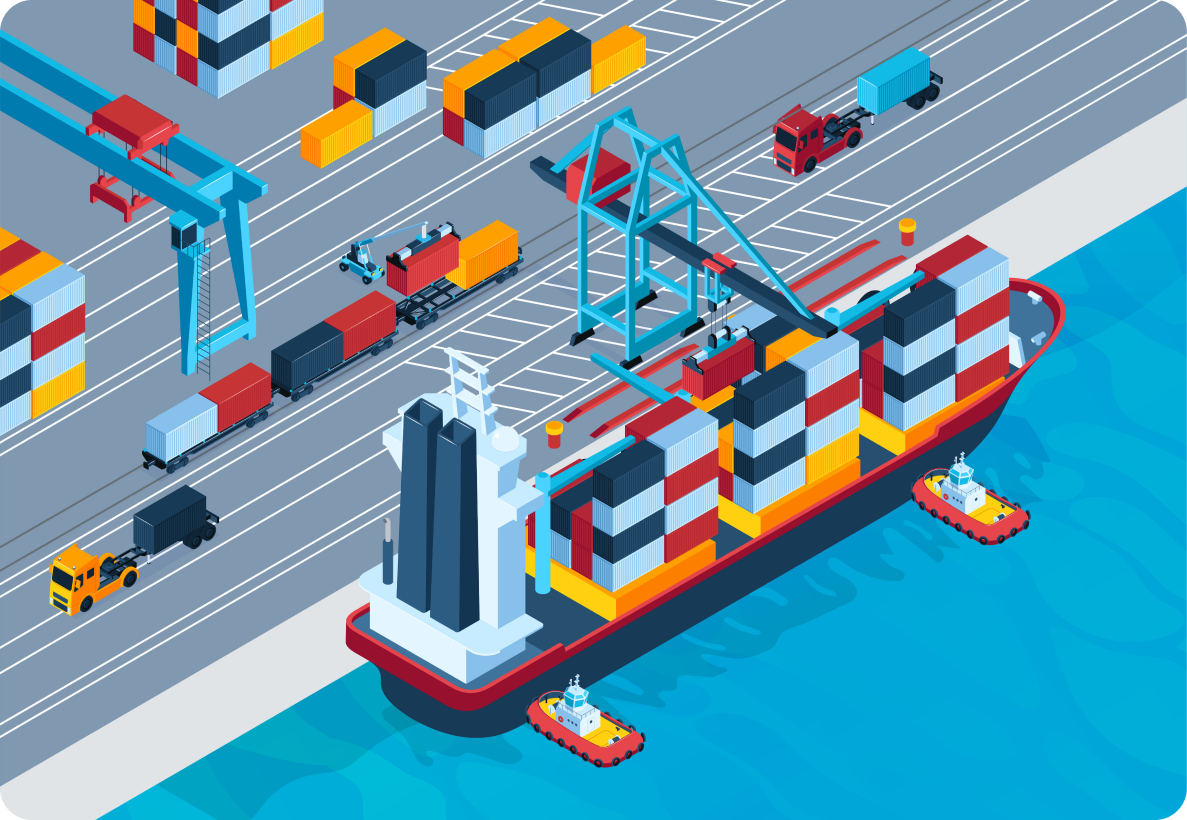Suppose you're an importer doing business in the EU. In that case, you might be interested in the VAT deferment scheme offered by tax authorities in 8 countries (Belgium, France, Germany, Ireland, Luxembourg, Netherlands, Poland, Spain, and Sweden).
To determine whether the scheme is right for your business, consult a VAT compliance expert. They can help you understand the legal requirements for an Article 23 license and advise whether the scheme is right for your business.
What is the VAT deferment scheme?
The VAT deferment scheme allows you to defer the payment of import VAT until you file your VAT return. This means you don't have to pay the VAT at the border when importing goods into the EU. Instead, you pay the VAT when you file your VAT return. This can improve your cash flow, as you don't have to pay the VAT upfront.
In this blog post, we will use the Netherlands as an example, as it is the most prominent one.
How does Article 23 in the Netherlands work?
Article 23 (Wet op de omzetbelasting 1968 - Artikel 23) is a provision in Dutch tax law that allows entrepreneurs to transfer the VAT to the VAT return upon import. To take advantage of the scheme, you need an Article 23 license.
An Article 23 license allows you to defer the payment of import VAT until you file your VAT return. To get the license, you need to meet certain legal requirements.
For example, if you're a domestic business, you need to have a fixed establishment in the Netherlands, regularly import goods from non-EU countries, and keep up-to-date records of your import VAT payments.
If you're a foreign business, you can't apply for an Article 23 license yourself.
Instead, you need to appoint a fiscal representative to apply for the license on your behalf. The fiscal representative is responsible for completing and filing your VAT return within the stipulated time frame, completing the intra-community transaction declaration, and ensuring the reverse charge mechanism is applied where applicable.
How does fiscal representation work?
A fiscal representative is a Dutch company representing a foreign entrepreneur for tax purposes. The fiscal representative files the VAT return and indicates how much VAT must be paid but deducts this VAT as input tax in the same return.
As a result of such a setup, foreign entrepreneurs have the same liquidity advantage as Dutch importers. It also makes the Netherlands interesting as a country for the import of goods.
For example, you can import goods through the Rotterdam port, clear the goods and transport them to Germany. In this way, the entrepreneur (EU or non-EU company) VAT registered in Germany does not have to pay the VAT, which should have been done if he had cleared the goods in Germany.
Good to know: Assuming your businesses fulfill all the legal requirements, you will receive an Article 23 license with no expiry date. However, it is important to note that the license can be revoked if you do not comply with the fundamental tax regulations.
What are the benefits of the VAT deferment scheme?
The main benefit of the VAT deferment scheme is improved cash flow. If you're an importer, you'll know that paying import VAT can be a significant expense. With the VAT deferment scheme, you don't have to pay the VAT upfront. Instead, you pay it when you file your VAT return. This can help improve your cash flow, as you'll have more money available to invest in your business.
Another benefit of the scheme is that it's time-efficient and convenient. With the Article 23 license, you can import goods into the Netherlands without delay. This means your goods are immediately available in the Netherlands, streamlining the import process.
Is the VAT deferment scheme right for your business?
Whether the VAT deferment scheme is right for your business depends on a variety of factors. For example, if you import goods regularly from non-EU countries, the scheme could be a good fit. However, if you don't import goods often, the benefits of the scheme might not outweigh the costs.
To determine whether the scheme is right for your business, consult a VAT compliance expert. They can help you understand the legal requirements, e.g., an Article 23 license, and advise whether the scheme is right for your business.
Conclusion
If you're an importer doing business in, e.g., the Netherlands, the VAT deferment scheme could improve your cash flow and streamline the import process. However, to take advantage of the scheme, you need an Article 23 license, which requires meeting certain legal requirements.
If you're interested in the scheme, consult a VAT compliance expert to determine whether it's right for your business.
